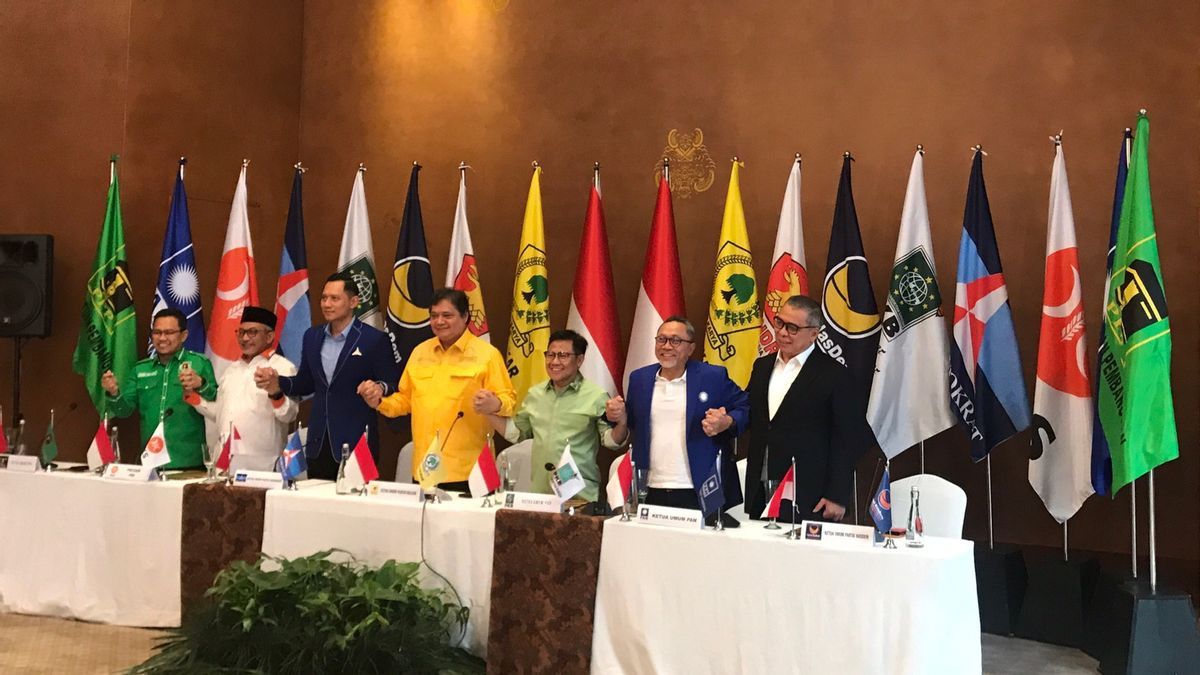Eight parliamentary parties issued statements rejecting a closed proportional system. Golkar, Gerindra, NasDem, PKB, Democrats, PKS, PAN, and PPP issued five statements of attitude read by Golkar Party Chairman Airlangga Hartarto.
The discourse of using a closed proportional system surfaced after 6 people filed a judicial review lawsuit with the Constitutional Court (MK). The six people are Demas Brian Wicaksono, Yuwono Pintadi, Fahrurrozi, Ibnu Rachman Jaya, Riyanto and Nono Marijono. Demas Brian Wicaksono is a PDIP cadre, while Yuwono was a cadre of the NasDem party.
They submitted a judicial review of Article 168 paragraph 2 of Law Number 7 of 2017 concerning General Elections to the Constitutional Court (MK). The law regulates the legislative elections that take place openly. This means that voters can directly elect their representatives as members of the legislature.
The petitioners who were accompanied by Sururudin and Maftukhan as attorneys asked that the 2024 general election system be implemented. In this system, voters use voting rights to choose only their party. If the number of votes meets the threshold, the party determines the legislative members who have been registered with the General Election Commission (KPU).
It became crowded because the chairman of the KPU Hasyim Asy'ari during the KPU's End of Year Note event at the KPU office, Menteng, Central Jakarta, Thursday 29 December 2022 talked about the possibility that the General Election system or the 2024 General Election would return to using a closed proportional system. He said the system was being discussed through the Constitutional Court trial.
Of the nine factions in the DPR RI, only the PDIP faction supports a closed proportional system. PDIP Secretary General (Secretary General) Hasto Kristiyanto said the reason his party supports the election system discourse proportionally closed because the open proportional system that has been running from the 2009 to 2019 elections tends to pass legislative candidates who are able to spend large capital in campaigning up to hundreds of billions of rupiah.
In fact, according to Hasto, as published in VOI, to become a member of the council alone, it must cost Rp. 5 billion to Rp. 100 billion.
In Indonesia, these two systems have been used. A closed proportional system was implemented in the New Order era until the reform era in the 1999 elections. Meanwhile, an open proportional system was implemented in the 2004 elections until the 2019 elections.
Indeed, an open proportional system has shortcomings but that is the risk that must be taken for the sake of the realization of democracy. Of course, when I first decided to use an open system, it was with careful consideration. That proportional systems are open to be the most appropriate. That society is smart enough to choose for themselves the candidate who is considered the best by looking at the track record.
Meanwhile, in a closed proportional system, the people like "buy cats in sacks". Do not know the candidate who will represent them. And it must also be remembered that if the proportional system is closed, the dominance of political parties seems to exceed the sovereignty of the people when the party or the general chairman determines his representative in parliament or legislative institutions. Something that is certainly not desirable. (*)
The English, Chinese, Japanese, Arabic, and French versions are automatically generated by the AI. So there may still be inaccuracies in translating, please always see Indonesian as our main language. (system supported by DigitalSiber.id)












